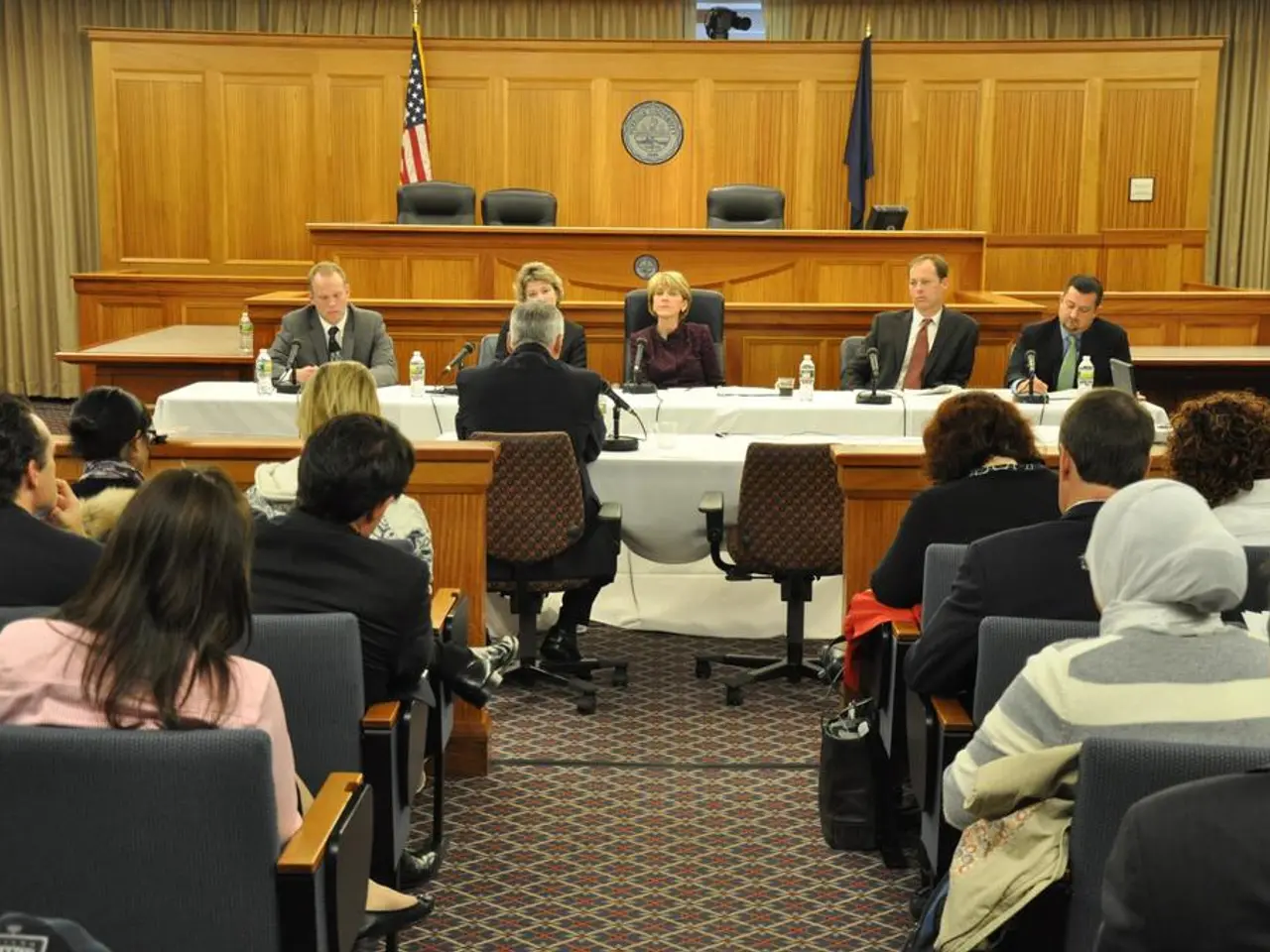Revised Regulations by FCA on Improper Conduct beyond Financial Averages
The Financial Conduct Authority (FCA) has announced significant changes to its Code of Conduct (COCON) regarding non-financial misconduct (NFM) in non-banks. The new rules, outlined in a policy statement published on 2 July 2025, aim to address concerns about sexual harassment, bullying, and other forms of misconduct in the financial services sector.
The amendments, set to come into force on 1 September 2026, extend the scope of COCON to explicitly cover serious non-financial misconduct such as workplace bullying, harassment, and violence for non-bank firms regulated under Part 4A permissions. This aligns the regulatory treatment of non-banks with banks concerning NFM.
The new rules will apply to senior managers and employees in regulated firms, including private fund managers and fintechs, but do not apply retrospectively. Firms without a Part 4A permission, such as payments and e-money firms, regulated investment exchanges, and credit rating agencies, are outside the scope, and the Senior Managers and Certification Regime (SM&CR) does not apply to them.
The FCA's new rules cover unwanted conduct that violates a person's dignity, creates an intimidating, hostile, degrading, humiliating or offensive environment, or involves violent conduct. NFM is defined broadly to include "any unwanted conduct" related to colleagues—covering fellow employees, employees of group companies, and contractor employees.
The FCA has clarified that not all misconduct for which a firm might take disciplinary action will amount to a breach of COCON. Seriousness is not the determinative factor when assessing whether non-financial misconduct is a breach of Individual Conduct Rule 1 (acting with integrity) or Individual Conduct Rule 2 (acting with due skill, care, and diligence).
Firms should reconsider their policies and procedures for addressing NFM, determine whether any enhancements may be necessary, and schedule updates for after any guidance is published accordingly. Training on the new rules should also be implemented, and the tone from the top should promote a culture in which NFM is not tolerated.
The FCA may take enforcement action in the most serious cases of NFM, but it is also likely to use more frequent regulatory action to combat NFM using supervisory, rather than formal enforcement, powers. The FCA's guidance on subjective and objective assessments of NFM includes considering both the perception of the subject of misconduct and whether it was reasonable for the conduct to have that effect.
The FCA aims to set out its final regulatory position by the end of 2025. These changes represent a significant expansion of the FCA’s approach to tackling non-financial misconduct uniformly across financial services firms, enhancing protection against harassment, bullying, and violence in the workplace.
- Understanding the changes, policy-and-legislation regarding employment law has expanded to include non-financial misconduct (NFM) in business sectors beyond banks, with the Financial Conduct Authority (FCA) influencing fintechs, private fund managers, and other non-bank firms via their new Code of Conduct (COCON) rules.
- In the realm of politics and general-news, the FCA has clarified that serious NFM, including harassment, bullying, and violence, will be addressed vigorously under the new rules, which focus on creating a work environment that promotes integrity and respect for all employees.
- As the FCA gears up to publish further guidance on their approach to addressing NFM, businesses must be proactive in revising their policies, providing training, and fostering a culture that doesn't tolerate such misconduct, in accordance with the anticipated final regulatory position by the end of 2025.




